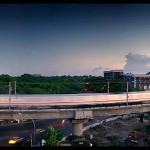This is an interesting article by Delwar Hussain – who is based out of UK and is a researcher of Bangladeshi politics and its diaspora. Here he outlines the dichotomies that exist in the Bangladeshi politics – where AWL (Awami League) and Bangladeshi National Party (BNP) are at loggerheads! Between the success or failure between them lies the fate of Bangladesh’s youths’ future – whether they will live in a secular society steeped in Bengali culture or they will live in an Islamic country with little regard for Bengali culture!
The fissure in the politics is actually supported by the foreign powers like Pakistan and others in Islamic terror combine have played their part. In this earlier story on Drishtikone, we had discussed how Khalida Zia/Dawood/ISI/Jamaat-e-Islami worked together to assassinate Sheikh Hasina and if it hadnt been for the timely intervention of Indian intelligence, she would have been dead by now.
So, if anything, if the Bengali culture is alive in Bangladesh and hasnt been run over by Islamists, lot of it is due to Indian intervention.. in 1971 and beyond!
These issues – Islamic and Bengali identity, religion and culture, political struggle and political power – are very much alive in London’s Bangladeshi diaspora, centred in the Tower Hamlets area. At their forefront are organisations such as the East London Mosque (author of conspicuous and effective Islamist initiatives) and the Shadinata Trust (a secular body that seeks to increase awareness of Bengali culture and history among British Bangladeshis).
The battle is an unequal one: the secular effort is faltering against the vibrancy and energy of the Islamists. One of the trust’s primary objectives is to bring collaborators in the liberation war, some of whom live in Britain, to justice. For many young people in deprived Tower Hamlets, this is ancient history with no relevance to their lives: they regard Bangladeshi politics as distant and corrupt, and day-to-day issues of drugs, gangs and unemployment as far more relevant.
The Islamists, by contrast, are sophisticated and up-to-date in their focus and appeal. The East London Mosque (and its affiliate, the London Muslim Centre [LMC]) shares the ideology of the Jamaat-e-Islami. The mosque is no fringe organisation; it was at the centre of the campaign that helped elect the local Respect party candidate and vocal critic of Britain’s New Labour government, George Galloway, in the 2005 general election.
An article on the website of the Islamic Forum Europe (IFE), an organisation associated with the mosque, urged voters to vote for Galloway; although it said he was “unlikely to establish khalifah in East London”, and he has “passionately (campaigned) for Muslim political prisoners far more than some of our Muslim community elders who are still living in the days of the subservient maharajas in British India.”
The London Muslim Centre hosted an event in honour of the new MP, where he expressed his gratitude to the young volunteers who “gave their blood” for him. The IFE’s president, Muslehuddin Faradhi, said: “We made sure that people (were) able to cast their votes without fear and intimidation and make an informed judgment. The way we attempted to educate people was significant. We believe the impact of this will be felt for years to come.”
A Bangladeshi Jamaat MP, Delwar Hossain Sayedee, has regularly appeared at the mosque and raised funds for his party there. These visits are controversial: older Bangladeshis accuse him of involvement in the massacres of Bengalis during the liberation war. But the Jamaat has made strenuous (and successful) efforts to distance itself from its extremist and anti-Bengali past, and young, third-generation, British-born Bengalis have demonstrated in support of Sayedee’s presence.
It is striking that a party with the Jamaat’s record can attract young people in Britain, when for the most part, they have little interest in the politics of their parents’ or grandparents’ country. In south Asia, the party has drawn support from those both promoted and dislocated by modernisation – middle-class people (teachers, lawyers, and engineers among them) repelled by western ideas and attracted to the ideological rigour of fundamentalism.
Indeed, societies in transition often generate fundamentalism. In London, the absence of a Bangladeshi middle-class has meant that support for the Jamaat was negligible, but it has discovered another constituency: the British-educated Bengali working class, those at the bottom of Britain’s social pyramid, heirs to endemic poverty and exclusion. The path of social advancement may be closed to them elsewhere, but the doorway to rightwing, fundamentalist theology is broad and always open.
















